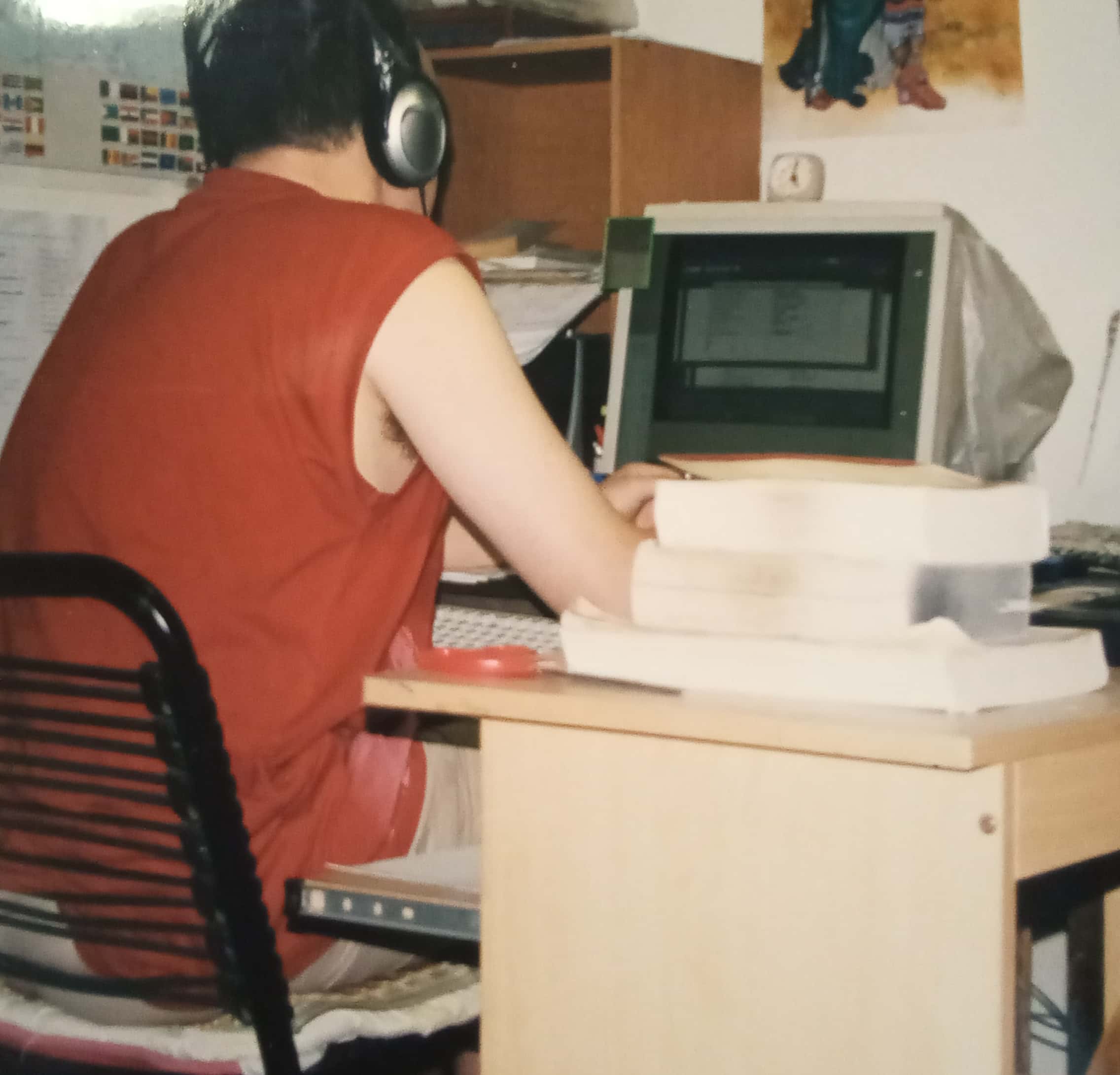Background to the texts “Advice about staying or coming back,” “Slave to the word” and “About friends and other personal reasons”: A good friend of mine who was also living in Kaohsiung at the time mentioned via email during her vacation in Cape Town that she felt like staying in South Africa. I suspected that this was only emotion speaking, but I nevertheless took the opportunity to say certain things.
——————–
TUESDAY, 3 FEBRUARY 2004
[…]
I hate the role I sometimes try to play. I hate to pretend I understand more than the average guy. I hate to hold up a picture of someone who knows what he’s doing. Regardless of whether this is what you think of me, it’s the caricature that I sketch of myself on the social landscape.
Here are the facts: I still haven’t decided whether I’m going to return to South Africa on March 4th or stay here for another few months.
I have two choices: 1) stay here but take on more classes; or 2) go back to South Africa next month and fill my place outside all socio-economic classes of which I am aware. It’s a showdown of enormous proportions.
I always say I have my finger on my own pulse, but I’m starting to get the idea and I have underestimated something the past few months. I am addicted to writing. And not in the romantic sense of the word. A heroin addict will go through 72 hours of excruciating withdrawal symptoms if he quits the drug. I believe I’ll slide into a bottomless depression if I write less for the sake of more classes, for the sake of shipping all my furniture and all my cups and mugs and kitchen towels and pillows and old jeans I haven’t worn in four years back to South Africa, and to then be able to afford a life that won’t catch too much wind.
I’m in a difficult position. I have sold my soul for the sake of my cause. And perhaps my cause belongs to a Supreme Being, and then it’s okay, I guess. But I can no longer turn back. I have considered other options and have found them all wanting. I don’t even believe love can help me anymore. (Maybe it will work for a few weeks until I start making notes on the bedsheets while the woman is waiting for something more exciting …)
(At this point, my fingers almost caught fire. I went to buy some instant noodles, smoked a cigarette, talked to [another friend], and read my history book. I now feel somewhat better.)
I don’t think it’s a good idea to send the above text to you.
The fact that I’m apparently writing this text to you at 00:55 on Wednesday morning, 4 February whilst not even sure if you’re actually going to read it serves as a clear indication of how holy I regard The Word. As I sit here writing this text to myself – at the moment, more than to you, I still believe it is relevant to someone other than yours truly.
I wish you and I could trade bodies for 24 hours. I would very quickly resolve your issues, and you could … bump my head against the wall a few times to shake out the loose parts that have caused me to sleep like a baby for the last several years, and to be awake like a madman.
I think I have given up on the idea to send all my furniture back to South Africa. What am I going to do with it anyway? A caravan is too small for it, and I can’t put it in a tree house. And it’s going to get wet on the lawn in somebody’s garden.
If my plans to repatriate myself could be compared to negotiations, the balance of power has definitely shifted over the past year or two. Initially, the one part said, “I want to go back to South Africa.” Then the other part that was mainly responsible for me coming to Taiwan in the first place, would say: “Okay, give me X amount of cash for a house, a car, a new computer, new clothes, a wig, a dog, a cat, and a lawn mower, Y amount of books written, and Z amount of Chinese mastered. Then we’ll consider repatriation.”
Currently the latter party is begging for mercy. He’s willing to give up everything but the wig and the lawn mower, “as long as we can just go home as soon as possible”. And the character who was previously known for sentimental pleas must necessarily be the voice of reason – a role that is obviously new to him, but who else is going to do it if the arrogant one of earlier negotiations is on the point of losing his mind because of too many “plans” he has to keep track of?
Still, I hate to see you walking down a similar path: uncertainty, setting up home on the wrong side of the planet, strong opinions on the choices made by so many of our friends and contemporaries.
[Paragraph where I joke about setting up a business consulting lost souls.]
No, rather come back, finish painting your walls, and put fresh oranges in that bowl. In the meantime, I will burn all my furniture, barter my books on night markets, and acquire enough cash for a large caravan. When I finally return to our beautiful country, I’ll pester you with dozens of letters every week to make sure you don’t stay here longer than I did at the end. And to remind you to move your bowl of oranges every now and then. Small adjustments like that will make your eventual repatriation much easier on the soul.
______________________

